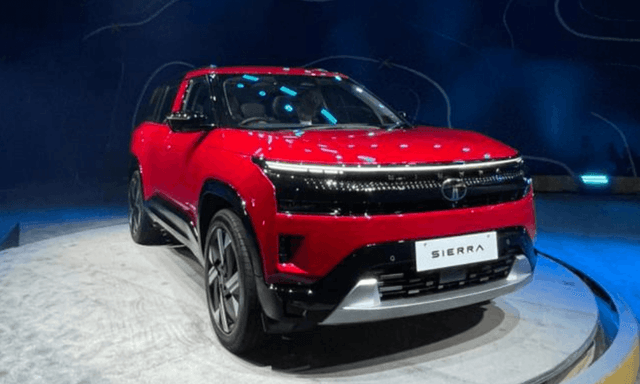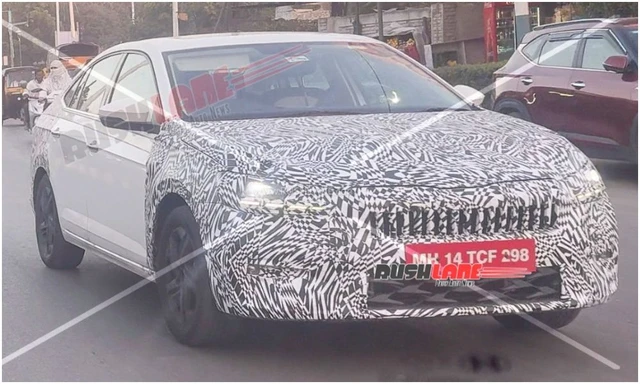Andhra Pradesh CM To Inaugurate First-Ever Thermal Battery Plant

Chief Minister N Chandrababu Naidu will unveil the world's first-ever thermal battery in his Andhra Pradesh state on Monday. Manufactured by the Bharat Energy Storage Technology Private Limited (BEST), the first-of-its-kind cell is aimed at boosting up renewable sources of energy production, instead of non-renewable fossil fuel-based energy generation.
The technology, which will help in mitigating carbon emissions, is best suited for grid balancing and stabilisations. It will also be used to store energy for telecommunication, commercial establishments, electric vehicles and highway charging stations. It can also be effectively used in remote locations, such as hilly terrains and islands.
The BEST also aims to set up a Greenfield Project in India, at an estimated cost of Rs. 660 crores, through which nearly 3000 jobs are expected to be created within three years' time.
From a capacity of 1000 megawatts, BEST would enhance the same to 10 gigawatts in the next six to seven years. Batteries suited for telecommunications, mini or microgrids and electric buses would be manufactured in the first phase.
Under the project, electric buses, produced in collaboration with Bilva Motors, a global consortium, could deliver an 800-kilometre range with a single charge, with the help of BEST's thermal cells. The cell can be customised to be charged in four or eight hours, depending on the source. It can also provide output ranging between 5Kwh and 1 Mwh.
The plant in Andhra Pradesh is expected to start commercial operations by May 2019.
Although solar power is considered the most reliable source of energy yet it has pitfalls. The energy generation is not possible after sunset and high rainfall areas, which brings in the need for a robust energy storage infrastructure. Thus, the coming of thermal battery is a landmark development in the field of technology and environmental protection.
Existing energy storage technologies depend on Lithium-based batteries, which are limited by life cycles, making it a very expensive proposition with replacements needed every six to seven years. They are also low on energy density and need a high footprint.
Furthermore, Lithium's sensitivity to extreme temperatures requires the energy storage systems to be placed in conditioned temperatures, requiring about eight to ten per cent energy storage for the cause.
However, BEST's High Energy Density Storage (HEDS) device is a revolutionary technology- invented and patented by Dr Patrick Glynn in India 2016.
What sets this storage device apart is the fact that it requires a small footprint and is priced at par with Lithium-based solutions, which have limited life cycles.
The company also plans to deliver the storage devices that are 100 per cent environment-friendly, using no hard metal or inflammable substances, and those which comprise 95 per cent re-usable materials.
It also aims at thriving in the global market by helping curtail global warming and carbon emissions and looks forward to helping achieve the Government of India's vision of electrified mobility by 2030.
Trending News
Latest News
 car&bike Team | Dec 14, 2025Top-Spec Tata Sierra Accomplished, Accomplished+ Prices RevealedRegardless of the powertrain combination chosen, all Tata Sierra Accomplished+ trims cost upwards of Rs 20 lakh (ex-showroom).2 mins read
car&bike Team | Dec 14, 2025Top-Spec Tata Sierra Accomplished, Accomplished+ Prices RevealedRegardless of the powertrain combination chosen, all Tata Sierra Accomplished+ trims cost upwards of Rs 20 lakh (ex-showroom).2 mins read car&bike Team | Dec 13, 2025Skoda Slavia Facelift Spied Testing Again Ahead Of DebutThe facelifted Slavia is expected to debut in 2026 as Skoda-VW India looks to refresh its India 2.0 range.1 min read
car&bike Team | Dec 13, 2025Skoda Slavia Facelift Spied Testing Again Ahead Of DebutThe facelifted Slavia is expected to debut in 2026 as Skoda-VW India looks to refresh its India 2.0 range.1 min read car&bike Team | Dec 13, 20252026 MG Hector Facelift Interior Previewed Ahead Of DebutLatest teaser video of the upcoming Hector facelift suggests minimal cosmetic changes to the interior as well as reveals a new alloy-wheel design.1 min read
car&bike Team | Dec 13, 20252026 MG Hector Facelift Interior Previewed Ahead Of DebutLatest teaser video of the upcoming Hector facelift suggests minimal cosmetic changes to the interior as well as reveals a new alloy-wheel design.1 min read Jaiveer Mehra | Dec 13, 2025Passenger Vehicle, Two-Wheeler Sales Surge In November 2025: SIAMBoth segments reported a growth in the region of 20 per cent, though year-to-date sales growth in FY2026 was notably flatter at around 3 per cent.1 min read
Jaiveer Mehra | Dec 13, 2025Passenger Vehicle, Two-Wheeler Sales Surge In November 2025: SIAMBoth segments reported a growth in the region of 20 per cent, though year-to-date sales growth in FY2026 was notably flatter at around 3 per cent.1 min read car&bike Team | Dec 12, 2025Nissan Entry MPV Design To Be Unveiled On December 18New MPV to be the first of three new models for India by Nissan, alongside the Tekton and a three-row SUV.1 min read
car&bike Team | Dec 12, 2025Nissan Entry MPV Design To Be Unveiled On December 18New MPV to be the first of three new models for India by Nissan, alongside the Tekton and a three-row SUV.1 min read Jaiveer Mehra | Dec 12, 2025New Mini Convertible Launched At Rs 58.50 LakhDrop-top variant of the iconic Cooper hatchback available in a single Cooper S spec.1 min read
Jaiveer Mehra | Dec 12, 2025New Mini Convertible Launched At Rs 58.50 LakhDrop-top variant of the iconic Cooper hatchback available in a single Cooper S spec.1 min read
 Janak Sorap | Dec 11, 2025Harley-Davidson X440 T First Ride Review: Smarter and SharperHarley-Davidson has taken the X440 and given it a more focused and engaging twist. The result is the X440 T—essentially the same platform but updated in areas that give the motorcycle more appeal and riders more thrill.5 mins read
Janak Sorap | Dec 11, 2025Harley-Davidson X440 T First Ride Review: Smarter and SharperHarley-Davidson has taken the X440 and given it a more focused and engaging twist. The result is the X440 T—essentially the same platform but updated in areas that give the motorcycle more appeal and riders more thrill.5 mins read Shams Raza Naqvi | Dec 10, 20252025 Mini Cooper Convertible Review: More Colour On Indian RoadsThe updated Mini Cooper Convertible is set to be launched in the Indian market in the next few days. We drive it around Jaisalmer for a quick review.1 min read
Shams Raza Naqvi | Dec 10, 20252025 Mini Cooper Convertible Review: More Colour On Indian RoadsThe updated Mini Cooper Convertible is set to be launched in the Indian market in the next few days. We drive it around Jaisalmer for a quick review.1 min read Bilal Firfiray | Dec 8, 2025Tata Sierra Review: India’s New Favourite?Marking its return after a few decades, the reborn Sierra has made everyone sit up and take notice. But is it worth the hype?10 mins read
Bilal Firfiray | Dec 8, 2025Tata Sierra Review: India’s New Favourite?Marking its return after a few decades, the reborn Sierra has made everyone sit up and take notice. But is it worth the hype?10 mins read Girish Karkera | Dec 4, 20252026 Honda Prelude First Drive: Domesticated Civic Type RA sporty-looking coupe built to give customers a taste of performance but not at the expense of everyday practicality.5 mins read
Girish Karkera | Dec 4, 20252026 Honda Prelude First Drive: Domesticated Civic Type RA sporty-looking coupe built to give customers a taste of performance but not at the expense of everyday practicality.5 mins read Seshan Vijayraghvan | Nov 29, 2025Mahindra XEV 9S First Drive Review: Big Electric SUV, Bigger ExpectationsThe XEV 9S lands at a time when the EV crowd is growing fast. It’s a big, born-electric, three-row SUV that starts under 20 lakh. It sits close to the XUV700 in size, but the brief is very different. Here’s what it’s like on the road.11 mins read
Seshan Vijayraghvan | Nov 29, 2025Mahindra XEV 9S First Drive Review: Big Electric SUV, Bigger ExpectationsThe XEV 9S lands at a time when the EV crowd is growing fast. It’s a big, born-electric, three-row SUV that starts under 20 lakh. It sits close to the XUV700 in size, but the brief is very different. Here’s what it’s like on the road.11 mins read































































































































